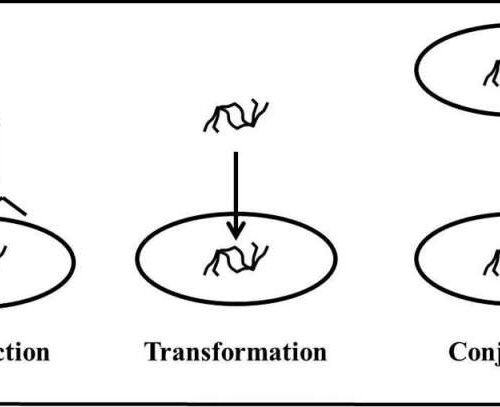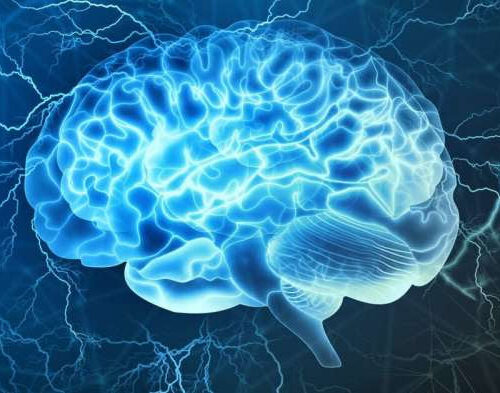by Dean J. Miller, The Conversation Credit: Shutterstock LED face masks are the latest device promoted on social media as a marriage of technology and beauty. A range of celebrities have endorsed portable versions of the product that was previously offered in beauty salons. Actress Olivia Munn carries hers with her at all times. Julia...
A new model for how the brain perceives unique odors
by Erica K. Brockmeier, University of Pennsylvania Vijay Balasubramanian. Credit: University of Pennsylvania A study published in PLOS Computational Biology describes a new model for how the olfactory system discerns unique odors. Researchers from the University of Pennsylvania found that a simplified, statistics-based model can explain how individual odors can be perceived as more or less similar from...
Government support for academia and Big Pharma to find new antibiotics could help defeat superbugs
by Andre Hudson, The Conversation Bacteria can gain resistance via infection from a virus (transduction), picking it up from the environment (transformation) or direct transfer from other bacteria (conjugation). Credit: 2013MMG320B/Wikimedia Commons Antibiotic resistance poses one of the most important health challenges of the 21st century. And time has already run out to stop its dire consequences....
A ‘flesh eating’ STI causing ‘beefy red’ sores is becoming more common. Should Americans worry?
Scott Gleeson USA TODAY A flesh-eating sexually transmitted infection that causes “beefy red” ulcers is becoming more prevalent in the United Kingdom, a new report out Friday revealed. According to the Center for Disease Control and Prevention, the STI, donovanosis, is most common in parts of India, Papua New Guinea, central Australia, and the Caribbean, and southern...
Study: Patients using Hello Heart’s device lowered, maintained blood pressure
By Emily Olsen October 28, 2021 Photo: KATLEHO SEISA/Getty Images A digital self-management program using an app and a connected monitor could help lower blood pressure and maintain those improvements long-term, according to a study published in JAMA Network Open. The study used Hello Heart devices, and was funded by the company. Two of the study’s authors were...
STANFORD SCIENTISTS SAY BRAIN MAGNETS CAN RELIEVE DEPRESSION
Researchers at the Stanford University School of Medicine say that they were able to treat depression in patients by stimulating their brains with magnets. In a study published on Friday, the researchers found that nearly 80 percent of patients had experienced remission of their depression after the procedure, which is called Stanford neuromodulation therapy (SNT). The technique...
Tool can reveal cancer subtypes by cell communities they’re found in
by Christopher Vaughan, Stanford University Medical Center The EcoTyper tool has allowed Stanford researchers to better understand how cells, such as these lung cancer cells, behave in different environments. Credit: David A. Litman/Shutterstock.com Researchers at the Stanford Institute for Stem Cell Biology and Regenerative Medicine have devised a tool to examine how cells behave and interact...
How chronic intestinal inflammation can cause cancer
by Frederike Buhse, Kiel University Microscopic image of inflamed intestinal tissue; on the right, the DNA repair mechanism is disrupted, resulting in increased tumor-promoting growth. Credit: IKMB, Kiel University Chronic inflammatory bowel disease (IBD) are inflammations of the gastrointestinal tract which flare up in phases and are accompanied by bloody bowel movements, diarrhea and severe impairment...
How to help kids with ‘long COVID’ thrive in school
by Susan Davies, Julie Walsh-Messinger, The Conversation Credit: Unsplash/CC0 Public Domain Children who get COVID-19 typically recover quickly and will not require special support upon return to school. However, some people who contract the disease experience persistent symptoms and post-viral complications. These complications can include fatigue, shortness of breath, brain fog, changes in taste and smell,...
Research sheds light on how Alzheimer’s progresses in the brain
by Georg Meisl, The Conversation Credit: Yurchanka Siarhei/Shutterstock Alzheimer’s disease and other types of dementia affect more than 55 million people worldwide. But the development of effective treatments and cures is progressing slowly. To some extent, this is because we still don’t understand enough about what causes the disease and drives its progression. Myself and my...








